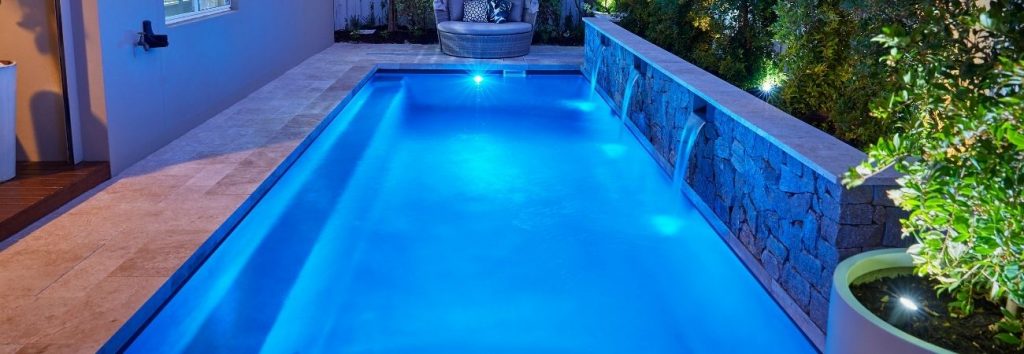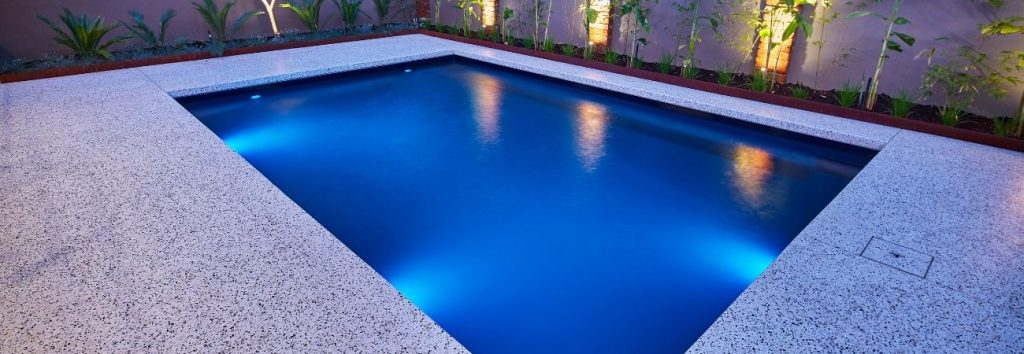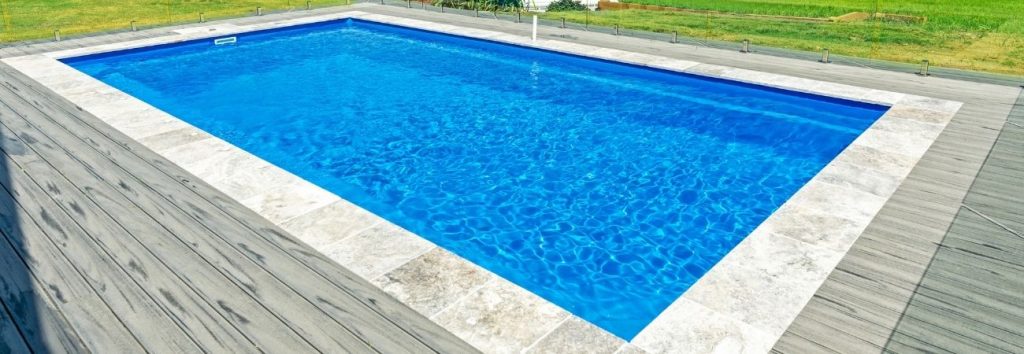The Most Common FAQS Answered About Small Fibreglass Pools
Traditionally, concrete was the only material used to construct swimming pools. But now, materials such as fibreglass and vinyl liner have arrived on the market. Fibreglass is gaining a lot of popularity in the pool building market. First-time pool owners have a lot of questions related to fibreglass pools. We attempt to answer some of these questions to put your doubts at rest.

What are Fibreglass pools and How are They Manufactured?
This is a common question among pool owners. Fibreglass pools are made by combining layers of different materials like gel coat, a vinyl ester resin layer, chopped fibreglass, structural honeycomb materials and fibreglass with polyester resin. These layers are placed one above another in the mould and left to cure.
Once the shell is cured, it is removed and trimmed according to specifications. Each layer of material adds additional quality to the pool. The gel coat makes its surface extremely smooth. The Vinyl ester resin layer gives the pool waterproofing and corrosion resistance qualities. The chopped fibreglass layer adds further strength to the shell. A roving layer decreases the stress on the shell. The structural comb layer is meant for additional support for tension points. The combination of all these materials results in the final product, which is extremely durable and flexible.
Are Fibreglass Pools Durable?
The word ‘glass’ in fibreglass gives the impression that these pools are delicate and prone to damage. Nothing could be further from the truth. As mentioned above, fibreglass pools are made from layers of material which give them additional strength and durability for long term use. Along with durability, these pools are flexible, which prevents them from cracking. If maintained properly according to manufacturers instructions, then these pools can last a lifetime. Their gel coat may need a replacement but only after decades of use.

Do these Pools Have Warranty?
Due to their durability, many manufactures offer lifetime structural guarantees on fibreglass pools. The manufacturers usually offer separate warranties on the pool structure and surface. Different manufacturers offer warranties of varying durations. A long warranty means that the manufacturer has full faith in the quality of his pool.
Are These Pools Costly to Install?
Fibreglass pools are less costly as compared to concrete pools. Since they are already factory-made, you get a proper estimate of the funds required for your pool. Their speedy installation process means that they will not overshoot the budget. They can be easily installed in small backyards. The installation process involves fewer men and materials as compared to concrete pools, which have to be built from scratch.
Do They Take Longer to Install?
Fibreglass pools can be installed quickly. You can enjoy your pool in 3-6 weeks. Concrete pools require 3-6 months of installation time. Since fibreglass pools are made in factories and transported to your home, the installation process causes minimum inconvenience. You don’t have to deal with a dug up backyard for months together as you wait for your pool.

Does Change in Climate Affect Fibreglass Pools?
No. Fibreglass pools are not impacted by climatic changes. They can be installed and used in any climate. Some people mistakenly believe that they crack in cold weather. This is the same as saying frozen water cracks an ice cube tray. Cold climate can cause these pools to expand upward but not outward.
Sunlight does not adversely affect fibreglass pools. The fibreglass pool finish does not fade due to strong sunlight. They are built to withstand extreme cold and hot temperatures. They also tolerate different chemicals used in the pools. This makes fibreglass pools highly suitable for people living in all regions.
Are Fibreglass Pools Difficult to Maintain?
No. They are very easy to maintain. They require the least effort in terms of money and time. Fibreglass pools have a smooth surface that prevents algae and dust from sticking to the pools. Any dust on the pool surface can be dislodged by light brushing. You can maintain the fibreglass pool yourself without involving any external help. In fact, harsh chemicals or strong brushes should not be used to clean fibreglass pools.
Fibreglass pools do not affect water chemistry levels. The non-porous surface does not absorb chemicals added to the pool. Your chemicals remain in the pool for longer. This means that checking water chemistry levels once a week is sufficient. They do not require acid washing frequently. The durable surface means that you do not have to worry about resurfacing or liner replacement frequently.
Fewer chemicals also mean less work for the filtration system. This saves energy. Fibreglass pools also retain heat longer. You can expect to save money on heating expenses also.
Can Fibreglass Pools be Customised?
If, by customised, you mean some fancy shape and unusual size, then you will be disappointed here. Fibreglass shells are made from prefabricated moulds. They have to be transported by road. They have limitations in size and shape. But they are available in different colours and finishes. You can customise your pool by adding personal touches to the tile, patio materials and water features. With the advent of technology, manufacturers offer fibreglass pools in different shapes. Fibreglass pools are also available with pre-fitted steps and tanning ledges at no extra cost.

Does the Colour of Fibreglass Pool Fade With Time?
The gel coat is very durable when maintained properly. But the colour can fade slightly after decades of use. Improper water chemistry can cause premature fading of the surface colour.
Does the Fibreglass Pool Float Up?
This floating up issue happens due to faulty installation. Installation of a sump pipe to monitor and remove groundwater can prevent this problem. The pool won’t float up if it is filled with water.
Yes. Fibreglass pools work well with saltwater systems. The salt does not react adversely with the surface of fibreglass pools. Concrete pool owners are discouraged from using saltwater chlorinators due to their adverse effect on concrete. Saltwater chlorinators give you fresher, cleaner water.
